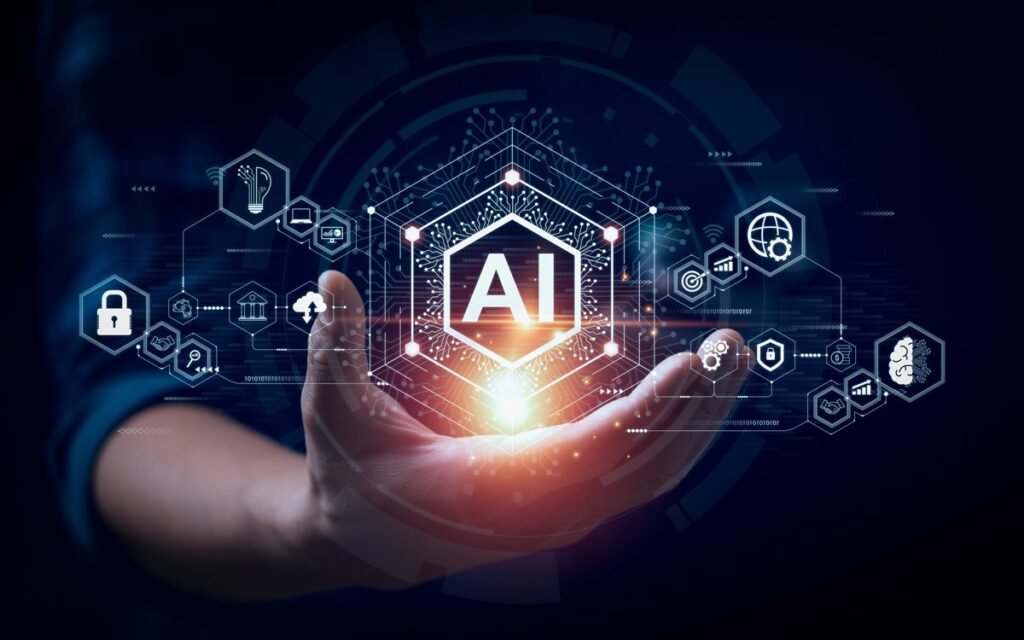Artificial intelligence (AI) is reshaping the marketing environment by delivering cutting-edge tools and techniques that are redefining how organizations interact with their customers. This thorough guide delves into the deep impact of AI in marketing, covering everything from automation and personalization to data analytics and customer engagement.
Marketing’s Evolution Using AI
Understanding the evolution of marketing using AI lays the groundwork for investigating its impact. Follow the evolution of artificial intelligence in marketing, from its early uses to the current era of advanced machine learning algorithms and predictive analytics. Recognize how artificial intelligence is altering traditional marketing concepts.
Efficiency and Automation
AI-powered automation is transforming marketing processes. Investigate how artificial intelligence (AI) eliminates repetitive processes, streamlines workflows, and improves efficiency. From email campaigns to social media scheduling, AI frees up valuable time for marketers, allowing them to focus on strategy and creativity.
Personalization at Scale
AI provides hyper-personalization, which allows marketing messages to be tailored to individual interests and actions. Investigate how artificial intelligence (AI) analyzes massive datasets to understand client profiles, predict their requirements, and deliver personalized content. Examine how tailored experiences affect customer satisfaction and brand loyalty.
Strategic Insights from Predictive Analytics
AI-powered predictive analytics gives crucial insights to marketers. Discover how artificial intelligence (AI) uses previous data to estimate future trends, customer behaviors, and market dynamics. Investigate the significance of predictive analytics in optimizing marketing strategies, successfully allocating money, and staying ahead of the competition.

Better Customer Segmentation
AI refines client segmentation, allowing marketers to precisely target certain audience segments. Learn how machine learning algorithms assess various data pieces to produce precise client segmentation. Explore the impact of granular segmentation on the effectiveness of marketing campaigns.
Chatbots and Conversational Marketing
AI-powered chatbots are revolutionizing customer interactions. Investigate how chatbots respond instantly, answer questions, and assist consumers through the sales funnel. Investigate the role of conversational marketing in increasing engagement, improving user experience, and increasing conversions.
Content Development and Curation
As a content creator and curator, AI is growing. Investigate the application of AI in the creation of written material, visual design, and even video production. Learn how AI-powered content tools may help marketers maintain a constant content flow while addressing the demands of various digital platforms.
AI-Assisted SEO Optimization
AI is essential in SEO optimization. Investigate how machine learning algorithms leverage search patterns, user behavior, and content relevancy to improve website rankings. Understand the impact of AI in crafting SEO strategies that align with evolving search engine algorithms.
Fraud Detection and Security
AI helps with fraud detection and security in marketing. Learn how machine learning models detect irregularities in user activity and help to avoid fraudulent behaviors like click fraud and account takeovers. Investigate the role of AI in maintaining a safe and trustworthy digital marketing environment.
Insights and Engagement on Social Media
AI-powered social media analytics provide deep insights into audience behavior and interaction. Investigate how artificial intelligence monitors social media interactions, mood, and trends. Understand the role of artificial intelligence in developing social media strategy, increasing engagement, and controlling online reputation.
Dynamic Pricing Techniques
AI enables dynamic pricing techniques, which optimize rates in real-time based on market conditions and client behavior. Investigate how machine learning algorithms use rival pricing, demand patterns, and customer preferences to determine dynamic and competitive pricing.
Attribution Modeling and ROI Analysis
AI improves attribution modeling by providing a comprehensive picture of marketing channels and their impact on conversions. Investigate how AI-powered analytics assigns value to each touchpoint in the customer experience. Understand the role of AI in precise ROI analysis and marketing budget optimization.
Marketing Ethics and Responsible AI
As AI becomes more prevalent in marketing, ethical considerations become increasingly important. Investigate the ethical issues raised by AI in marketing, ranging from data privacy concerns to algorithmic biases. Understand the significance of ethical AI practices and their impact on consumer trust.
Adoption Difficulties and Overcoming Resistance
Despite its potential, AI adoption in marketing is fraught with difficulties. Examine common roadblocks, such as organizational opposition and data integration challenges. Understand strategies for overcoming resistance, fostering a culture of AI acceptance, and ensuring seamless integration into marketing workflows.
Future Trends in AI Marketing
The future of artificial intelligence in marketing promises fascinating potential. Investigate upcoming trends, such as the incorporation of AI in augmented reality and the emergence of AI-powered voice search. Position your marketing approach to adapt to the changing marketplace and capitalize on future AI advances.
Conclusion
The impact of artificial intelligence (AI) in marketing is disruptive, transforming the way firms communicate with their customers. AI is a valuable friend for marketers negotiating the challenges of the digital age, from automation and personalization to predictive analytics and ethical considerations. Embracing AI-driven methods places firms in the dynamic marketing landscape for innovation, efficiency, and long-term growth.


